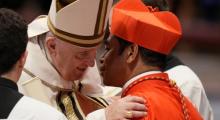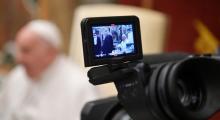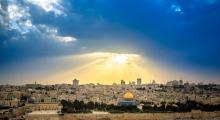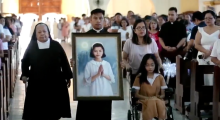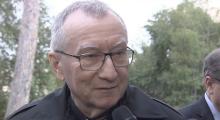Issued by the Catholic Center for Studies and Media - Jordan. Editor-in-chief Fr. Rif'at Bader - موقع أبونا abouna.org
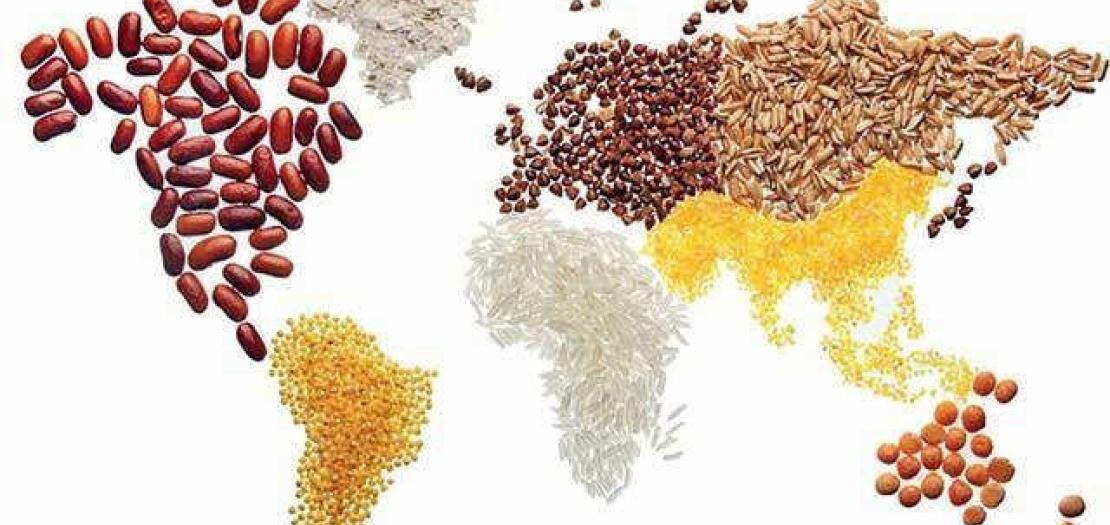
“The poor cannot wait.” Those were the Pope’s words in a message to the Director of the Food and Agricultural Organisation, José Graziano da Silva on the occasion of World Food Day. The Pope underlines that although some may say that there are twelve years ahead of the goal of Zero Hunger by 2030, urgent action needs to be taken to aid those whose circumstances are desperate. From now until 2030, the Holy Father says, “we have 12 years to set up initiatives that are vigorous and consistent”.
Urgent Call to end hunger
He notes that the theme for this year Our actions are our future: A Zero Hunger world by 2030 is possible, “becomes an urgent call to responsibility on the part of all those actors who are in agreement with the objectives of the 2030 Agenda for Sustainable Development, a rallying cry to wake us from the slumber that often paralyzes and inhibits us.”
Effective help not mere agreements
The Pontiff goes on to say that, “we are all invited, especially the FAO, its member States, the national and international organs and institutions, civil society and all persons of good will, to redouble our commitment so that no one lacks the necessary food, neither in quantity nor in quality.” The poor, states Pope Francis, “expect from us an effective help that takes them out of their misery, not mere propositions or agreements”. Looking at all the advancements that have been made in many fields in this century such as in technology, science, communications and infrastructure, the Pope, says the world “ought to feel shame for not having achieved the same advances in humanity and solidarity, and so satisfy the primary needs of the most disadvantaged.” He stresses that, “we can and we must do better for the helpless. We must move to concrete action, so that the scourge of hunger disappears completely.” This, he adds, “requires policies of cooperation for development which, as the 2030 Agenda indicates, are oriented towards the real needs of the poor.” We can dream of a future without hunger, the Pope continues, “but this is only reasonable when we engage in tangible processes, vital relations, effective plans and real commitments.”
Unity and political will
In the message the Holy Father stresses the need for unity, both on a local and global level in response to the challenge of hunger. In this sense, he says, “the 2030 Agenda, with the Sustainable Development Goals, and the Zero Hunger initiative, require international entities, like the FAO, to engage responsibly the member States so that they can undertake and implement initiatives at the local level. Alluding to a lack of political will to end the scourge of hunger, Pope Francis points out that, “what is needed is the willingness to end hunger, and this ultimately will not happen without a moral conviction that is shared by all peoples and all religious persuasions…”
Proactive vision
It is likewise necessary, he says, to have a proactive vision, rather than a reactive approach. When the view is superficial, the Pope adds, “we overlook the structural aspects that shroud the tragedy of hunger: extreme inequality, poor distribution of the world’s resources, consequences of climate change and the interminable and bloody conflicts which ravage many regions, to mention only some of its causes.” What’s needed, Pope Francis stresses, is the suppression of weaponry and the deadly arms trade in order to hear the voice of those who cry desperately…” The Pope ends his message by recalling the work of the Catholic Church, in the exercise of her mission in the struggle against hunger and he adds that “those who suffer from misery are not different from us. They share our flesh and blood. They deserve, then, a friendly hand to help and support them…”


